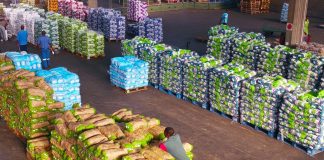Out of a total water supply of more than 55,4 million kilolitres, the losses amounted to 40% of KZN’s water supply. This placed undue strain on an already stressed water system. “Demand for water already exceeds supply in KZN, said Gareth Morgan, DA MP. ‘‘Considering that over one million residents of KZN do not yet have access to an acceptable level of water infrastructure, it is a shame that so much water is wasted, he added.
If we could curb these water losses at municipal level we could make more water available for productive uses, including farming,” said Morgan. Molewa’s reply was provided in response to questions posed by Morgan. Data from Molewa indicated that out of KZN’s 14 water service authorities (WSAs), the worst offender was Newcastle, which lost about 76% of its water input each month, or 1,28 million kilolitres out of a total of 1,83 million kilolitres.
Durban’s eThekwini municipality suffered a 36% water loss. But it used 80% of the system’s water, and therefore losses amount to 9,39 million kilolitres per month. Msundusi municipality lost 40% or 2,2 million kilolitres a month, Uthukela lost 60% or 1,8 million kilolitres and Mhlathuze lost 38% or 1,5 million kilolitres a month. Molewa said financial assistance of R46,3 million had been provided to KZN’s WSAs for water demand and conservation management.
In addition, the Umgungundlovu municipality had successfully applied to the Dutch government for grant funding of about R380 million, of which 60% was for water demand and conservation management. “Strategies are being implemented to address imbalances,’’ Molewa said. ‘‘eThekwini municipality is reducing losses through the replacement of leak-prone asbestos cement pipelines, leak detection, pressure reduction, rezoning and improvement in reservoir integrity.” She added that eThekwini aimed to reduce water losses to 28% by 2013.
Morgan said the Department of Water Affairs needed to put the worst offending municipalities on terms. “Municipalities must spend a greater portion of their budgets on maintenance of local water infrastructure. If they can’t, they should contract private sector partners,” Morgan said.











